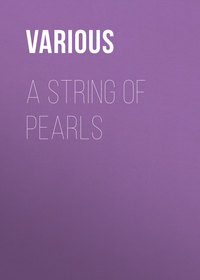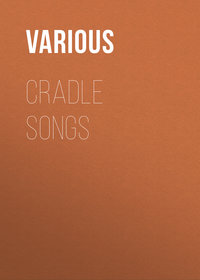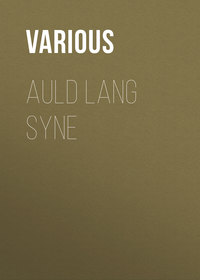![Birds Illustrated by Color Photography [January, 1898]](/covers_330/25570847.jpg)
Birds Illustrated by Color Photography [January, 1898]
The natural home of the Wild Pigeon is within the wooded lands, and they are seldom met with upon the broad prairies. Audubon observed that it was almost entirely influenced in its migrations by the abundance of its food, that temperature had little to do with it, as they not infrequently moved northward in large columns as early as the 7th of March, with a temperature twenty degrees below the freezing point.
“The Wild Pigeons are capable of propelling themselves in long continued flights and are known to move with an almost incredible rapidity, passing over a great extent of country in a very short time.” Pigeons have been captured in the state of New York with their crops still filled with the undigested grains of rice that must have been taken in the distant fields of Georgia or South Carolina, apparently proving that they must have passed over the intervening space within a very few hours. Audubon estimated the rapidity of their flight as at least a mile a minute.
The Wild Pigeon is remarkable for its ease and grace, whether on the ground or the limbs of trees. Though living, moving, and feeding together in large companies, they mate in pairs. Several broods are reared in a season, nesting beginning very early in the spring. The nests are placed on trees, being a slight platform structure of twigs, without any material for lining whatever. Two white eggs are laid.
Mr. Goss says (1891) that the Passenger Pigeon is still to be found in numbers within the Indian Territory and portions of the southern states, and in Kansas a few breed occasionally in the Neosho Valley.
THE PASSENGER PIGEON
Some people call us the Wild Pigeon and the Gypsy among birds. We do wander long distances in search of food, and when we have eaten all the beech nuts in one part of the country, take wing, and away we go like a great army to another place.
And such an army! We form in a column eight or ten miles long, thousands and thousands of us, our approach sounding like a gale among the rigging of a vessel. Not always in a straight course do we go, but in a winding way looking for all the world, against the sky, like a vast river. Then our leaders give the word, our captains, you know, and we form in a straight line, sweeping along as you have seen regiments of soldiers marching on parade. We are just as fond of forming new figures as they are, and our captains, by their actions, give their orders much in the same way.
“Down, Up! Right, Left!” and away we go forming our evolutions in the air.
But you should see us when Mr. Hawk attacks our flock. Then, like a torrent, and with a noise like thunder, we rush into one compact mass, each pressing upon the other toward the center. Swiftly we descend almost to the earth, then up again, forming as we do a straight column, twisting, turning, looking, when far up in the air, like a great serpent. At other times we fly straight ahead, very swiftly, going at the rate of a mile a minute. I don’t believe any of you little folks have ever traveled as fast as that behind a locomotive.
Then our roosting places! Ah, you ought to see us there! There was one in Kentucky, I remember, in a dense forest, where the trees were very large, a forest forty miles long and three wide, larger than many cities. The Pigeons began to collect after sunset, thousands upon thousands, flock after flock continuing to arrive even after midnight. There were not trees enough to go around, and so many of us perched upon one limb that the largest branches broke, killing hundreds of Pigeons in their fall. The noise we made could be heard at the distance of three miles. People who like Pigeon pie came with long poles and guns, and when morning broke, and the Pigeons that could fly had disappeared, there were heaps and heaps of little fellows lying dead upon the ground.
We occupied that roost about two weeks. When we left it for good, the forest looked like it had been swept by a tornado.
THE SHORT-EARED OWL
“I think,” said Bobbie, looking over the present number of Birds, “that the Owl, instead of the Red-eyed Vireo, ought to be called ‘The Preacher.’”
“Why?” said his mamma, always pleased at her boy’s fancy.
“Because the Owl looks so wise – and – solemn!” said Bobby.
Mamma laughed.
“He does look solemn,” she agreed, “but about his wisdom I am not so certain. Turn to the text and let us see what he does say about himself.”
“Hoo, hoo, hoo, hoo!”
“That doesn’t sound very wise,” said Bobbie, reading aloud, “though Mr. Shouter’s preaching sounds like that to me sometimes.”
“Does it?” replied mamma, suppressing a smile, “well, go on and see what else he says.”
“I’m not a Screech Owl, nor a Barn Owl, nor a Great Horned Owl, nor a Long-eared Owl, though I am related to each of them. Mr. Screech Owl thinks he is a singer, and so does Mr. Horned Owl. Between you and me, I think both their songs most doleful ditties. One gentleman says Mr. Horned Owl hoots in B flat, another says in F sharp, and another in A flat. I must confess it all sounds very flat to me. I don’t pretend to sing at all. Sometimes I feel like saying something, just to hear the sound of my own voice, and then I shout ‘Hoo, hoo, hoo, hoo!’ as loud as I can. If there are little Owls in the nest, and anything approaches them, I give a shrill, hollow cry, at the same time snapping my bill spitefully.
“I am sometimes called the Marsh Owl, because I frequent the grassy marshes instead of the woods. I don’t confine myself to prowling around only in the night time, like some Owls I know, but you will see me about also on dark days, and sometimes even when the sun is shining.
“My eyes, you see, are round and yellow just like a cat’s, shining in the dark like his. Indeed there is a good deal of the cat in my nature. When stealing on my prey I go about it just as stealthily as he does. Like him I catch mice too, but I also like beetles, gophers, and all sorts of little water birds.
“I have only two eyes, but I have two sets of eyelids. One I draw over my eyes in the day time, a thin sort of curtain to keep out the light, and the other a heavy curtain which I pull down when I go to sleep. I’m going to sleep now. Good night! or, rather, good morning!”
THE SHORT-EARED OWL
MARSH OWL, Meadow Owl, and Prairie Owl, are some of the names of this species of an interesting family, which is found throughout North America at large, though in greater numbers in the Arctic regions during the nesting season than in the United States. It is believed that no land bird has so extensive a range as this species, occurring, as it does, throughout all the grand divisions of the earth’s surface, except Australia. In America it is found everywhere in favorable localities, from Alaska and Greenland to Cape Horn. Truly a cosmopolitan bird, observed by the inhabitants of nearly all countries.
The Short-eared Owl is seen in the marshes, the thickets of bottom lands, and Davie says it seems to be particularly common in the tall weeds and grass of fields and meadows. In the west it is found on the extensive prairies, along sloughs, hiding in the day-time among the sage bushes and tall grass. It is a night wanderer, but often hunts its food on dark days, and field mice, moles, shrews, and other small rodents are captured by it while on noiseless wing, or while standing motionless watching for its prey.
The nest of the Short-eared Owl is made on the ground in the matted grass of marsh land; sometimes in a depression at the foot of a bush, beside a log, or in a burrow made by a rabbit or a muskrat. A few sticks, soft grasses, and some of its own feathers usually comprise the nest proper, though the eggs are not infrequently laid on the bare ground. These are from four to seven, white and oval. In Ohio they are laid in April, sometimes as early as the latter part of March, or as late as the middle of May, within which dates it doubtless may be found breeding throughout the United States.
Mr. Nelson says that this is the most abundant species of the Owl family. They are common everywhere in Illinois during the winter, remaining concealed in a bunch of grass or weeds until almost two o’clock p.m., when they commence flying low over the ground in search of food. When approached, while standing on the ground, they crouch and try to escape observation. They are harmless and are easily tamed, and as a rule, are silent. Mr. Nelson heard one of the birds, in Alaska, utter rapidly a loud cry which sounded like the syllables Hoo, hoo, hoo, hoo, in a higher key than the note of the Horned Owl, and in a much less sonorous tone. When alarmed for their young, they have been heard to utter a shrill hollow cry, and at the same time make quite a noise by spitefully snapping their bills.
We fancy the Owl family alone will enable Birds to furnish a collection of pictures – perhaps forty in number – that will fascinate the bird lover, and make him eager to possess other groups for study, wonder, and delight.
THE ROSE COCKATOO
I look like a foreigner, don’t I? You may search through the forests of America and you won’t find a bird that looks like me.
My family live in New Guinea; we speak English when we get among English people, Spanish when we get among Spanish people, and French when we get among French people.
If you don’t believe it, just say “Parlez-vous Français, Monsieur?” and see how quickly I’ll open my pretty mouth and answer “Oui.”
If you don’t understand that, ask your teacher what it means. I once lived in a French family, you see.
You don’t think my mouth is pretty, did you say? Well, that is according to taste. I think it is. Of course, my bill turns in like a hook, as Miss Poll Parrot’s does, and my tongue is thick like hers, but I fancy I talk much plainer than she does. Anyway I talk louder. Why, if you should happen to hear, without seeing me, you would think it was a man’s strong voice talking to a deaf person.
And then my laugh! You should hear me laugh when I’m angry. Whew! Have you ever heard a hyena in the Zoo? Well, it sounds something like that.
I am a large, handsome bird. My eyes also are large, and so are my feet. That is the reason I not only talk, but walk Spanish, I suppose.
But, my cap! That is what distinguishes me. You never saw a common Parrot with a crest like that. When I am angry the feathers stand straight up, opening and closing just like a lady’s fan.
The next time your mamma or papa takes you to the Zoo, turn to the cage of foreign birds and see if one of our family is not there. Maybe he will talk to you and maybe he’ll not. He would if you could get into his cage and stroke his head. I am sure he would laugh if you tell him Mr. Rose Cockatoo sends his love.
THE ROSE COCKATOO
THE Rose Cockatoo, as may be seen, is a remarkably handsome bird. The species is gregarious, and they are very numerous in South Australia, where they frequent woods and feed on seeds, fruits, and larvae of insects. Their note is harsh and unmusical. The young ones tame readily and some species show remarkable intelligence. They associate in flocks of from one hundred to one thousand and do great damage to newly planted grain, for which reason they are mercilessly destroyed by farmers. Two eggs only, of a pure white color, are laid in the holes of decayed trees or in the fissures of rocks, according to the nature of the locality in which they live.
This is a rather large bird, equalling a common fowl in dimensions, and assuming a much larger form when it ruffles up its feathers while under the influence of anger. Many of these birds are fine talkers, and their voice is peculiarly full and loud.
An authentic anecdote is told of a Cockatoo which was quite celebrated for its powers of conversation; but as he was moulting at the time, his voice was temporarily silenced, and he sat in a very disconsolate manner on his perch, looking as if he had fallen into a puddle and not had time to arrange his plumage. All the breast and fore-parts of the body were quite bare of feathers and even the beautiful crest had a sodden and woe-begone look. By dint, however, of talking to the bird and rubbing his head, he was induced to say a few words, which were given in a voice as full and rounded as that of a strong voiced man accustomed to talking to deaf people. Presently the spectators were startled with a deafening laugh, not unlike that of the hyena, but even louder and more weird-like. On turning around, they saw the Cockatoo suddenly transformed into a totally different bird, his whole frame literally blazing with excitement, his crest flung forward to the fullest extent, and repeatedly spread and closed like the fan of an angry Spanish lady, every feather standing on end and his eyes sparkling with fury while he volleyed forth the sounds which had so startled them. The cause of this excitement was the presence of two children who had come to look at the bird, and whom he recognized as having formerly excited his ire. He always objected to children, and being naturally irritable from the effect of moulting, his temper became uncontrollable.
The Cockatoo is not gifted with the wonderful imitating powers of the true Parrot, and on account of its deafening cries is not an agreeable inhabitant of the house. It is in a state of nature that the birds are most interesting. They are not shy or wary, are very vociferous, and, like the common Parrots, rise up in bodies toward sunset and fly two-and-two to their resting places. It is a superb sight to see thousands of these beautiful creatures flying overhead, low enough to permit a full view of their feathered mantles.
PLEAS FOR THE SPEECHLESS
Sweet mercy is nobility’s true badge. – ShakespeareIF all the birds should die, not a human being could live on earth, for the insects on which the birds live would increase so enormously as to destroy all vegetation. – Michelet.
Prof. E. E. Fish estimates that birds save, for agricultural purposes alone, annually, one hundred million dollars in the United States, and we are told that insect life in many places has increased so as to make human life almost unendurable.
The bravest are ever the most humane, the most gentle, the most kind; and if any one would be truly brave, let him learn to be gentle and tender to everyone and everything about him. – Rev. Arthur Sewell.
“Every first thing continues forever with a child; the first color, the first music, the first flowers paint the foreground of life. The first inner or outer object of love, injustice, or such like, throws a shadow immeasurably far along his after years.” – Jean Paul Richter.
We have long ago found that the great remedy for all these wrongs lies, not in law and prosecuting officers, but in the public and private schools; that a thousand cases of cruelty can be prevented by kind words and humane education, for every one that can be prevented by prosecution; and that if we are ever going to accomplish anything of permanent value for the protection of those whom our societies are organized to protect, it must be through the kind assistance of the teachers in our public and private schools.
We found another important fact, that when children were taught to be kind to animals, to spare in spring-time the mother-bird with its nest full of young, to pat the horses, and play with the dogs, and speak kindly to all harmless living creatures, they became more kind, not only to animals, but also to each other. – Geo. T. Angell.
I am in thorough accord with the proposition to have the birds protected, and my words cannot be clothed in too strong language. We are a nation of vandals. Birds make the choir of the heavens and should be protected. – Cardinal Gibbons.
THE MOUNTAIN PARTRIDGE
THIS, one of the most beautiful of the Partridges, is much larger and handsomer than Bob White, though perhaps not so interesting or attractive as a game bird. The pretty plumes are noticeable in the chick just from the egg, in the form of a little tuft of down, and their growth is gradual until the perfect plumage of the adult is obtained.
The Mountain Partridge is found breeding along the Pacific coast region from California north into Washington. According to the observer Emerson, it is found nesting in the higher mountain ranges, not below four thousand feet. In some portions of Oregon it is very abundant, and would be sought for by the sportsman with great assiduity were the regions that it inhabits more accessible. As it is, it is not only hard to find but very difficult to secure when once flushed, hiding easily from the dogs, who become discouraged by repeated unsuccessful efforts to find it.
The Mountain Partridge deposits its eggs on the ground, on a bed of dead leaves, under a bush or tuft of grass or weeds. Its habits are exceedingly like those of the Bob White. From six to twelve eggs are laid of a cream color, with a reddish tint. They have been described as miniatures of those of the Ruffed Grouse, only distinguishable by their smaller size.
This Partridge will usually run before the dog, is flushed only with much trouble, and often takes to the trees after being started. California is comparatively destitute of wood except on inaccessible mountain sites and canons, localities preferred by these birds. It is not known to descend to the valleys.
BOB WHITE
“I own the country here about,” says Bob White;“At early morn I gayly shout, I’m Bob White!From stubble field and stake-rail fenceYou hear me call, without offense,I’m Bob White! Bob White!Sometimes I think I’ll ne’er more say, Bob White;It often gives me quite away, does Bob White;And mate and I, and our young brood,When separate – wandering through the wood,Are killed by sportsmen I inviteBy my clear voice – Bob White! Bob White!Still, don’t you find I’m out of sightWhile I am saying Bob White, Bob White?”– c. c. m.THE NEW TENANTS
By Elanora Kinsley MarbleFather and mother are building a nest;They have found in Greenwood the place that is best.They are working so hard through the long summer day,Gathering grasses and hair and hay.They are so happy, for soon they will hearThe eager “Peep, peep!” of their babies so dear.Dear mother, gather them safe ’neath each wing;Kind father, hasten, for food you must bring.Now mother and father will teach them to fly:“Come, timid birdies; come, try; come, try.Fly out in the Greenwood, dear birdies, with me;Then back to the nest in the dear old tree.”Mrs. Wren was busy that morning. She had been away all winter, among the trees in the south, but was back in the old neighborhood now, getting her house in order for the summer season.
Mr. Wren, with a number of other gentlemen Wrens, had arrived some weeks before and had been kept pretty busy looking about for a desirable apartment in which to set up housekeeping. Several had struck him as being just the thing, among them a gourd which one thoughtful family had set for a Chickadee. “I’ll fetch some sticks and straws and put a few in each house,” said he, with the greediness of his kind, “so the other birds will think it is rented. Mrs. Wren is so particular maybe none of them will suit her. She always wants something better than Mrs. John Wren, her cousin, and I notice Mr. John looking about in this neighborhood, too.”
In the low bushes and shrubbery Mr. Wren flitted from day to day, keeping his eye on one apartment, especially, which he considered particularly fine.
“I do wish she would hurry up,” he thought, anxious for Mrs. Wren to arrive. “It takes a female so long to get ready to go anywhere. I saw an impudent Blue Jay around here this morning and he may take a fancy to that apartment up there. I wouldn’t like to tackle him, and so, to let him see that it is rented, I’ll fetch a few more straws,” and off Mr. Wren flew, returning in a very little while with his bill full.
Well, about the first of April Mrs. Wren arrived, quite tired with her journey, but as sprightly and talkative as ever. Mr. Wren greeted her with one of his loudest songs, and they flew about chattering and singing for quite a while.
“I suppose,” said she, resting at length on the limb of a maple tree, “that you have been flying about, eating and drinking and talking with the other Mr. Wrens, and not looking for a house at all. That is the way with your sex generally, when there is any work to be done.”
“Oh, it is?” said Mr. Wren, his feathers ruffled in a minute. “That’s my reward for staying about this house and the grounds all the time, is it? My whole time has been taken up in house hunting, let me tell you, Mrs. Wren, and in keeping my eye on one particular apartment which is to let up there.”
“Where?” chirped Mrs. Wren, her bright eyes traveling up and down the side of the house before them. “I don’t see a box or crevice anywhere.”
“Oh, you don’t?” said Mr. Wren, mimicking her tone and air, “not a single box or crevice anywhere. Who said anything about either, I’d like to know?”
“Why, you did, Mr. Wren,” said Mrs. Jenny, every feather on top of her head standing on end. “You did, as plain as could be.”
“I said nothing of the sort,” retorted Mr. Wren, “I never mentioned a box or crevice once.”
“Then what did you say,” returned Mrs. Wren with a little cackling sort of a laugh, “what kind of a house is up there to let anyway?”
“Talk about females being as sharp as we males,” muttered Mr. Wren, “I never saw so stupid a creature in my life” – then aloud, “don’t you see that tin tea-pot hanging on a nail under the porch, Mrs. Wren?”
“A tin tea-pot!” scornfully. “Do you think a bird born and bred as I was would go to housekeeping in an old tea-pot, Mr. Wren? You forget, surely that my father was a – ”
“Oh, bother your father,” ungallantly retorted Mr. Wren. “I’m tired and sick of that subject. If you don’t like the looks of that house up there say so, and I’ll take you to see several others.”
“Oh, well,” said Mrs. Wren, who all the time had thought the tea-pot just the cutest little apartment in the world, “I’ll fly up there and examine it. Maybe it will do.”
“It’s just lovely,” she announced, flying back to the tree, and for a minute or two they chattered and sang, and fluttered about in such a joyful manner that some of their bird neighbors flew over, curious to hear and see.
“Still,” remarked Mrs. Jenny the next day, when fetching material for the nest, “I had hoped, my dear, that you would have followed my father’s example in selecting a house for your family.”
“Still harping on ‘my father,’” groaned Mr. Wren, dropping on the porch the straws he had fetched in his bill. “Well,” cheerfully, “how did he do, my dear?”
“As a bird of courage would, Mr. Wren. He never looked for a vacant house, not he! From place to place, from tree to tree he flew, and when he espied a nest which pleased him, off he chased the other bird and took possession. Bluebird or Martin, it was all the same to him. Ah, indeed, my father was a great warrior.”
“Hm, yes!” said Mr. Wren, who didn’t like to be thought less brave than another. “That accounted for his one eye and lame leg, I presume.”
“The scars of battle are not to be laughed at, Mr. Wren,” loftily said Mrs. Jenny, “Papa’s one eye and crooked leg were objects of great pride to his family.”
“The old scoundrel,” muttered Mr. Wren, who looked upon his father-in-law as no better than a robber, but to keep peace in the family he said no more, and with a gush of song flew off to gather some particularly nice sticks for the nest.
For some days Mr. and Mrs. Wren were too busy to pay much attention to their neighbors. Mr. Wren, unlike some birds he knew, did not do all the singing while his mate did the work, but fetched and carried with the utmost diligence, indeed brought more sticks, Mrs. Wren told her friends, than she had any use for.
“Such a litter, ma’am,” said Bridget the next morning to the mistress of the house, “as I do be afther sweepin’ up from the porch ivery day. A pair of birds, I do be thinkin’, are after building a nest in that owld tin pot on the wall. It’s this day I’m goin’ to tear it down, so I am. Birds are nuisances anyway, and it’s not Bridget O’Flaherty that’s goin’ to be clanin’ afther them, at all, at all.”
“Oh don’t!” chorused the children, “we want to see with our own eyes how the birds go to housekeeping in the Spring. It’s ever so much better than just reading about it. Tell Bridget, mamma,” they pleaded, “to leave the pot alone.”









